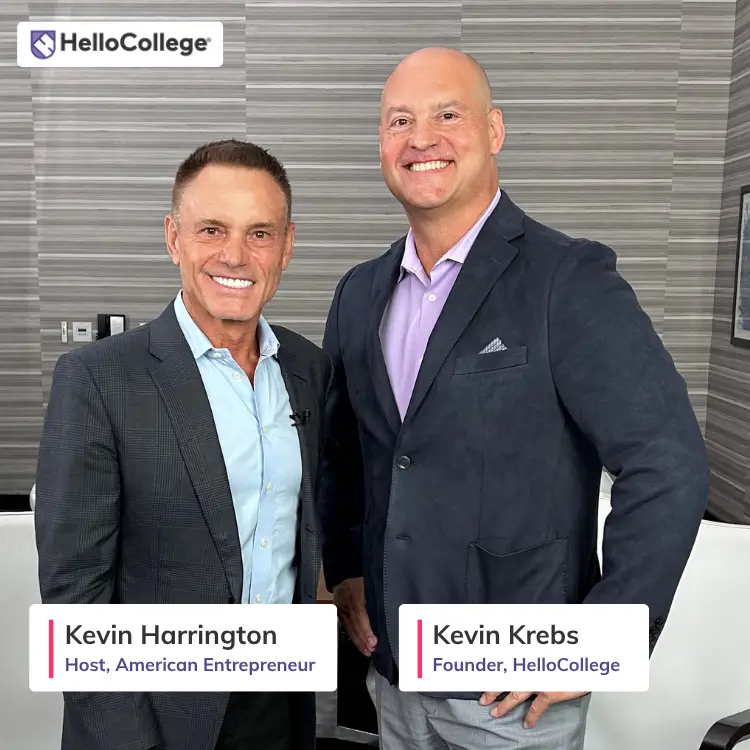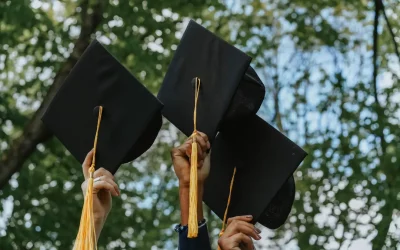Whether it be in-person or online, the college admissions interview is perhaps the most nerve-wracking aspect of the college application process. But, just because an interview is looming doesn’t mean you need to panic!
The best cure for admissions interview jitters is proper preparation. With that in mind, here is your ultimate guide to college admissions interviews!
Why Do Colleges Give Interviews?
The first question you may ask yourself when invited to an interview is, Why? If your transcripts and test scores meet the standard, then why do you need to go further than that? That’s a valid question – one without a simple answer.
Not all colleges give or require admissions interviews, but those that do typically do so to help sift through candidates who may be very similar in academic achievement. When you only have ten spots left, and all ten applicants are comparable academically, you need to have another way to determine who to admit into your university.
How Do Interviews Help College Admissions Representatives Make Decisions?
Interviews can help colleges glean information that isn’t readily available in your transcripts or test scores.
There are several kinds of College Admissions Interviews, and they all serve different purposes.
- Admissions Officer Interview: During these evaluative interviews, admissions staff or highly trained students ask several questions to determine whether you are a good fit for the school. This is the most serious kind of interview because the admissions officer has a high degree of influence over whether to admit you.
- Alumni Interview: Alumni may conduct a formal or informal interview then provide feedback to the admissions office. Prospective students are evaluated on a form describing their impressions of the candidate. The interview gives the applicant an opportunity to highlight their extracurricular activities and their academic strengths.
- Current Student Interview: Many colleges have “student ambassadors” trained to interview applicants. These ambassadors are instructed to ask appropriate questions, and to help applicants feel relaxed. Student ambassadors do not have direct influence over admissions decisions, but if they really like or dislike an applicant their opinions can sometimes make a difference.
College Admissions Interviews help admissions counselors find out who you are as a person, your hobbies and aspirations, and whether you would be a good fit for a given school. The interview is also an excellent chance to learn more about what it’s like to be a student there. So, yes, interviews, depending on the type, can help with admissions decisions – — both for the college and for you.
Are Interviews Optional?
As with most things that concern university admissions, whether the interview is optional depends on the college. At top-tier colleges such as Yale, Brown, Columbia, Harvard, Stanford, etc., the interview process is often mandatory. These universities have so many applicants per year, they need a way to efficiently sift through candidates.
There are also plenty of universities that offer optional interviews. These are typically more informational than actual interviews. It doesn’t matter much, though, whether a school’s interview is optional or not; you should still attend. Your attendance shows initiative and will help you learn more about the college!
What to do Before & After the Interview
Your role in the interview process is best broken down into three steps:
- Before
- The day of
- The days after
Before
The key to success is preparation. You should learn about the interview process and the school you’re interviewing with.
To do so, read online comments from current students on Rate My Professor, Reddit, or Social media, and try to familiarize yourself with the school’s culture..As for preparing for the interview process, you can also try conducting some practice interviews with a family member or friend. Your practice interviewer might ask you some of these practice questions:
- Why do you want to attend this university?
- What are some of your strengths and weaknesses?
- What are you reading at the moment?
- Where do you see yourself in five years?
- What do you hope to gain from your studies?
- What do you like to do for fun?
- What is one thing you would change about your high school experience?
- What makes you unique?
These are just a few of the most common university admissions questions. It’s important that you take the time to think about your answers and prepare for how you are going to respond. These questions are specifically designed to help the interviewer learn about who you are, as well as how you operate as a person, student, and friend.
Next, you should prepare a few questions to ask the interviewer. You don’t need many: Just one or two should give you more information about the university. These are also a great chance to show the interviewer that you have studied the school, and are interested in it!
There are no ‘standard’ questions you should ask the interviewer. Just remember that you should make them personal for both parties. For example:
- If you are an athlete, try asking about the athletics program at the school.
- If you have a specific area of interest in study, try asking about research projects that professors are conducting in that area.
You can also even ask simple questions, like:
- How’s the food in the cafeteria?
- Where’s the best place to study on campus?
Remember, it’s most important that the interviewer likes you. They don’t need to be impressed with everything you say or do.
The day of
For In-Person Interviews:
Get dressed up! A crisp, clean appearance shows you’re willing to put in the work to do a good job.
Plan to arrive at least 15 minutes before the scheduled start. Before you walk in, take a deep breath and review your practice questions and answers. Turn off your phone, and prepare for the interview!
Virtual Interview:
Set your camera positioning and lighting before your virtual interview.
During the interview, remain relaxed and maintain eye contact. Try to pretend you are just having a discussion with an aunt or uncle – not as casual as a friend, but not as formal as an authority figure.
If you stay relaxed, remember to be personable, and keep your practice in mind. You’re sure to ace the interview without a problem!
The days after
The weeks after an interview can be as nerve-wracking as the weeks before. You may find yourself constantly worried that you didn’t ace the interview. But it’s okay, this is normal! Use this time to follow up and show initiative.
Within two days, handwrite and send a thank you note to the admissions team. Let them know you appreciated the chance to interview. Extend the opportunity to reach out to you if they have further questions.
Within two weeks after the interview, you should send a follow-up email or make a follow-up call to inquire about the status of your application and see if the admissions office has any further questions for you. The rest is just waiting!
Other Tips & Tricks
There is only so much preparation one can do for an interview. At a certain point, you have to dive in headfirst and just go through the process. However, there are a few tricks and tips that may help it proceed more naturally:
- Honesty is the best policy. Never pretend to know an answer to something you don’t. At the same time, don’t shy away from talking about yourself and your achievements.
- Avoid being too casual with your clothing. Do not wear Open-toed shoes, flip-flops, dirty or stained clothing, shorts, hats, excessive make-up, excessive cologne, casual or ‘sports’ clothing. Do wear business casual attire, such as collared shirts, nice casual dresses, nice shoes, etc.
- Avoid single sentence or single-word answers. Always do your best to elaborate on your responses.
- When conducting a phone or virtual interview, do your best to emphasize the cheerfulness and excitement in your voice. These may be hard to convey without being in person, so focus on it a little more.
- Don’t let your parents attend the interview with you. College is about independent thought, work, and living. You need to show you can operate independently from your parents right off the bat.
- Do not use any foul language. Being casual or witty is fine if the atmosphere permits, but foul language or cursing is never okay in an interview.
Final Thoughts
There is no sure-fire method for conducting the perfect interview. Every university is different, and every interviewer has a distinct personality and ‘touch’ to their process. This makes preparing a bit like trying to hit a moving target. However, if you follow the best practices, prepare your practice questions, and remain calm and confident, you’ll have a great interview.
For more information about college admissions interviews read these posts:
Thank You Letters Speak Volumes in College Planning
Acing College Admissions Interviews
Acing Scholarship and Honors College Interviews Part 2 of 2
At HelloCollege, we aim to help make the college admissions process as smooth and easy as possible. Read through our other blogs, or reach out to us today to learn more about how you can properly prepare to get accepted into the university of your dreams.







